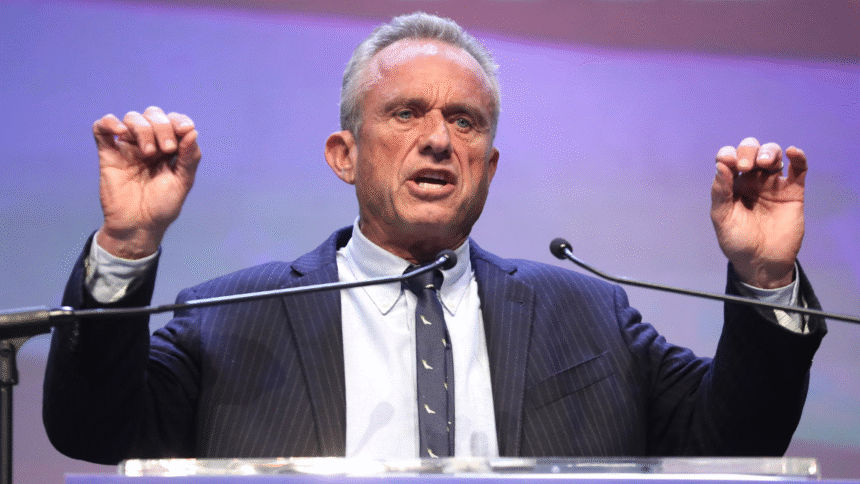This led to outbreaks of diphtheria in countries such as Haiti, Bangladesh, and Venezuela. In the Democratic Republic of the Congo, a large outbreak in 2023 killed more than 200 children. In Bangladesh, the outbreak killed more than 100 children in 2023, and in Venezuela, it killed more than 50.
As vaccine coverage rates drop, so does the protection of herd immunity — a concept that means if enough people are vaccinated, even those who can’t be are protected. When that protection drops, diseases like diphtheria, which are highly contagious, can spread quickly among unvaccinated populations.
It’s this that worries South Africa’s public health experts the most.
“Vaccines only work for everyone when almost everyone uses them,” says Shabir Madhi, a vaccinologist at the University of the Witwatersrand. “We’ve seen this with Covid-19. If just a few people don’t get vaccinated, the virus can spread rapidly, even among those who are vaccinated.”
Madhi says that while South Africa is not at risk of a diphtheria outbreak like those seen in other countries, the RFK Jr saga underscores the importance of trust in vaccines.
“Vaccines only work when people have confidence in them,” he says. “If we lose that, we’re in trouble.”
Over the past few years, vaccine hesitancy — the delay or refusal of vaccines despite their availability — has been on the rise globally. From the MMR (measles, mumps, and rubella) vaccine to the HPV vaccine, campaigns against vaccines have gained momentum and followers. The RFK Jr saga is just the latest in a long line of attacks on vaccines, but it has the potential to do the most harm.
As South Africa gears up to start a booster campaign against Covid-19, Madhi says it’s more important than ever to reinforce the importance of vaccines and the trust people should have in them. “We’ve come a long way in the fight against deadly diseases,” he says. “But we can’t afford to go back.”
about the dangers of misinformation regarding vaccines. Misinformation, spread by prominent figures like Robert F Kennedy Jr, can lead to a lack of trust in vaccines, putting public health at risk. Vaccines have been instrumental in reducing the prevalence of deadly diseases like diphtheria, but attacks on vaccine science can erode the progress made in global health.
Kennedy Jr’s recent video accusing Gavi of distributing harmful vaccines has sparked controversy within the global public health community. His anti-vaccination stance contradicts years of scientific research that has proven vaccines to be safe and effective in preventing diseases. This misinformation campaign can undermine the efforts of organizations like Gavi, which have made significant strides in vaccinating children worldwide.
In South Africa, where government funding covers vaccine programs, the impact of misinformation on public health is still a concern. While the country has pledged support to Gavi for vaccine distribution in lower-income countries, the rise of vaccine hesitancy poses a threat to the effectiveness of immunization campaigns.
Experts warn that the loss of trust in vaccines can have far-reaching consequences, as seen in recent diphtheria outbreaks in countries where vaccination rates declined due to the Covid-19 pandemic. Maintaining high vaccine coverage is essential to prevent the resurgence of deadly diseases that can easily spread among unvaccinated populations.
As South Africa prepares for a Covid-19 booster campaign, health officials emphasize the importance of reinforcing trust in vaccines. Vaccine hesitancy is a growing concern globally, and efforts to combat misinformation and promote vaccine confidence are crucial to safeguard public health. Vaccines have saved millions of lives, and it is essential to continue building on this progress to protect communities from preventable diseases. Vaccines also protect communities as a whole, through herd immunity.
“Vaccines are one of the most cost-effective interventions in public health,” says Amponsah-Dacosta. “If you invest in vaccines, you’re saving so much money in the long run and you’re saving lives.”
Because vaccines prevent illness, they reduce the need for healthcare services and decrease the economic burden on families and society. In South Africa, the cost of treating a single case of diphtheria can be exorbitant, not to mention the devastating impact on families and communities.
Amponsah-Dacosta believes that South Africa needs to invest more in communication campaigns to counter misinformation and educate the public about the benefits of vaccines.
“We need to be proactive in educating the public about vaccine-preventable diseases, the importance of vaccines, and the safety of vaccines,” she says. “We need to make sure that people have access to accurate information so they can make informed decisions about their health.”
As South Africa grapples with outbreaks of preventable diseases like measles and diphtheria, the stakes couldn’t be higher. It’s crucial that the government, healthcare professionals, and the public work together to ensure that everyone has access to life-saving vaccines and accurate information about their benefits. A recent study conducted in 73 countries estimated that childhood vaccinations administered over a decade from 2001 to 2020 had a broader social and economic value of US$ 820 billion. This groundbreaking research highlights the incredible impact that vaccines have on child health and the overall well-being of communities worldwide.
Susan Cleary, the director of the school of public health at the University of Cape Town, emphasized the importance of vaccines in saving lives and preventing diseases. She referred to vaccines as a “miracle intervention” that has transformative effects on public health.
In a study published in PLOS ONE, researchers demonstrated how Covid-19 vaccines significantly reduced hospital admissions in South Africa. The follow-up study, soon to be published, revealed that these vaccines not only saved lives but also resulted in cost savings for taxpayers.
The long-term benefits of vaccination extend beyond immediate health outcomes. By preventing diseases, vaccines ensure that individuals can lead healthy lives, pursue education, and contribute to the economy. This not only saves lives but also safeguards livelihoods and promotes economic prosperity.
Despite the overwhelming evidence supporting the safety and efficacy of vaccines, there is a global rise in vaccine hesitancy. This trend is fueled by misinformation, a lack of trust in health authorities, and a complex information landscape. It is crucial to address vaccine hesitancy by providing accurate information and dispelling myths to ensure that individuals make informed decisions about their health.
In the face of misinformation and skepticism, it is essential to immunize the public against false information by promoting evidence-based facts about vaccines. By empowering individuals with accurate information, we can combat vaccine hesitancy and ensure that everyone has access to life-saving vaccines.
The study’s findings underscore the immense value of childhood vaccinations in promoting public health, saving lives, and driving economic growth. Vaccines have proven to be a crucial tool in preventing diseases, protecting communities, and securing a healthier future for generations to come. The world is changing rapidly, and with it, so are our habits and ways of living. One of the most significant changes we have seen in recent years is the shift towards a more sustainable lifestyle. People are becoming more aware of the impact their actions have on the environment and are taking steps to reduce their carbon footprint.
One of the ways in which people are embracing sustainability is through the adoption of reusable products. From tote bags and water bottles to metal straws and bamboo utensils, there are now a plethora of eco-friendly alternatives to single-use items. These products not only help to reduce waste but also save money in the long run.
Another way in which people are living more sustainably is by choosing to support local and organic food producers. By buying locally sourced and organic products, consumers are not only reducing their carbon footprint but also supporting small businesses and farmers in their community. This trend has led to a rise in farmers’ markets and community-supported agriculture programs, where consumers can buy fresh, seasonal produce directly from the source.
In addition to changing their consumption habits, many people are also making an effort to reduce their energy consumption. This can be done through simple actions such as turning off lights and appliances when not in use, using energy-efficient lightbulbs, and investing in renewable energy sources like solar panels. By making these small changes, individuals can significantly reduce their carbon footprint and help to combat climate change.
Overall, the shift towards a more sustainable lifestyle is a positive development that has the potential to benefit both the environment and our communities. By embracing reusable products, supporting local and organic producers, and reducing our energy consumption, we can all play a part in creating a more sustainable future for generations to come.








